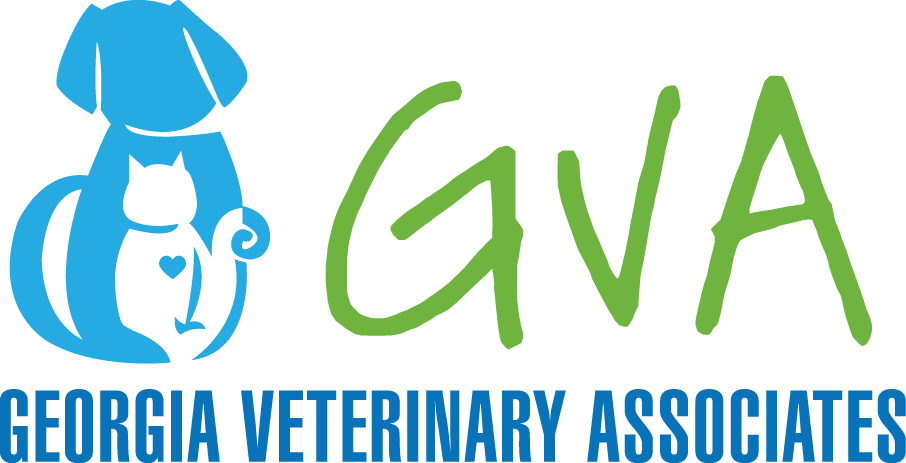What is Cranial Cruciate Ligament Disease?
Also referred to as Cruciate Disease, Ruptured Cranial Cruciate Ligament, ACL Injury, Torn Cranial Cruciate Ligament, Partial ACL Injury, Tibial Plateau Leveling Osteotomy, Tibial Tuberosity Advancement, Lateral Suture Stabilization, Meniscal Tear
The cranial cruciate ligament is one of the most important stabilizers inside the canine knee joint, the middle joint in the back leg. In humans, the CrCL is called the anterior cruciate ligament or ACL.
The meniscus is a ‘cartilage-like’ structure that sits in between the thigh and shin bones. It serves many important purposes in the joint such as shock absorption, position-sensing, and load-bearing, and can be damaged when the CrCL is ruptured.
Rupture of the CrCL is one of the most common reasons for hind limb lameness, pain, and subsequent knee arthritis. Since the development of this problem in dogs is much more complex than in humans, and they experience different degrees of rupture (partial or complete), the canine condition is referred to as ‘cranial cruciate ligament disease’. While the symptoms associated with CrCLD vary, the condition invariably causes rear limb dysfunction and pain.
Most commonly CrCLD is caused by a combination of many factors, including aging of the ligament (degeneration), obesity, poor physical condition, genetics, conformation (skeletal shape and configuration), and breed. With CrCLD, ligament rupture is a result of subtle, slow degeneration that has been taking place over a few months or even years rather than the result of acute (sudden) trauma to an otherwise healthy ligament (which is very rare). This difference between people and dogs explains two important features of canine CrCLD:
- 40-60% of dogs that have CrCLD in one knee will, at some future time, develop a similar problem in the other knee.
- Partial tearing of the CrCL is common in dogs and progresses to a full tear over time.
Cranial cruciate ligament disease can affect dogs of all sizes, breeds, and ages, but rarely cats. Certain dog breeds are known to have a higher incidence of CrCLD such as Rottweilers, Newfoundlands, Staffordshire Terriers, Mastiffs, Akitas, Saint Bernards, Chesapeake Bay Retrievers, and Labrador Retrievers while others are less often affected like Greyhounds, Dachshunds, Basset Hounds, and Old English Sheepdogs. A genetic mode of inheritance has been shown for Newfoundlands and Labrador Retrievers.
Poor physical body condition and excessive body weight are risk factors for the development of CrCLD. Both of these factors can be influenced by pet owners. Consistent physical conditioning with regular activity and close monitoring of food intake to maintain a lean body mass is advisable.
Many treatment options are available for CrCLD. The first major decision is between surgical treatment and non-surgical (also termed conservative or medical) treatment/management. The best option for your pet depends on many factors including their: activity levels, size, age, skeletal conformation, and degree of knee instability.
Surgical treatment is typically the best treatment for CrCLD since it is the only way to permanently control the instability present in the knee joint. Surgery addresses one of the main issues associated with CrCLD—knee instability and the pain it causes as a consequence of the loss of normal CrCL structural support.
What is a Cruciate Repair or TTA?
The goal of surgery is not to “repair” the CrCL itself. Due to biological and mechanical influences, the CrCL has no ability to heal once tearing begins regardless of the degree of severity. Unlike in human ACL surgery, the canine CrCL is not typically “replaced” with a graft. This fact is largely due to the major mechanical differences that exist between biped (human) and quadruped (canine) knees that make graft-based techniques less reliable in dogs. If present concurrently, meniscal injury will be addressed by your surgeon by removing the damaged meniscal parts when performing surgery to stabilize the knee.
We at Georgia Veterinary Associates believe the best treatment for a torn cruciate is a Tibial Tuberosity Advancement or TTA.
Tibial Tuberosity Advancement (TTA) requires a linear cut along the front of the shin bone. The front of the tibia, called the ‘tibial tuberosity’ is advanced forward until the attachment of the quadriceps is oriented approximately 90 degrees to the tibial plateau. This is another way to accomplish the same mechanical advantage offered by the TPLO that renders the knee more stable in the absence of the CrCL. The TTA and TPLO share similar advantages and disadvantages. Similar to the TPLO, the cut in the bone is stabilized by the use of a specifically designed bridging bone plate and screws. The decision between TPLO and TTA is based purely on the opinion of your surgeon and their personal technical experience. To date, no published data supports one technique being superior to the other.
-American College of Veterinary Surgeons
This procedure is only preformed at our Russell Ridge location in Lawrenceville.
